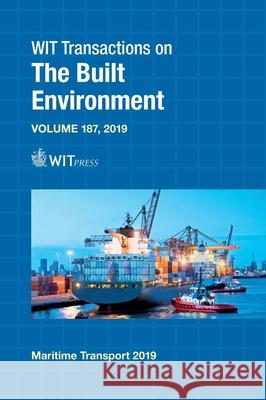Maritime Transport » książka
Maritime Transport
ISBN-13: 9781784663476 / Angielski / Twarda / 2019 / 284 str.
Maritime transport faces multiple challenges, therefore it requires an interdisciplinary approach in order to respond efficiently to the interaction between diverse agents. This book presents interdisciplinary research, as well as operational experiences, which contribute towards the development of the field. The substantial growth of maritime shipping has resulted in large quantities of good and products being transported around the world, creating a demand for innovative solutions for infrastructure and fleets. A further increase in the scale and the size of container carriers and passenger cruisers also requires special facilities. These developments have presented a challenge for different types of technologies, as well as operational systems. Maritime transportation ought to be integrated with other services such as railways, roadways and airports and, in some cases, river and canal traffic in order to achieve maximum efficiency. It also needs to respond rapidly to the economic and political circumstances in different parts of the world. These challenges often require extreme performances in terms of capacity, speed of delivery, energy consumption, environmental sustainability, as well as social and economic aspects. A range of topics are covered, including: Ports and their operation; Routing and automatic control of marine ships; Responsible and sustainable port innovation and development along the 21st century Maritime Silk Road; Ports of the future - Sustainable intelligent ports for smart and autonomous ships and logistics; Pollution and the protection of the marine environment; Maritime education and training; Planning and management.











